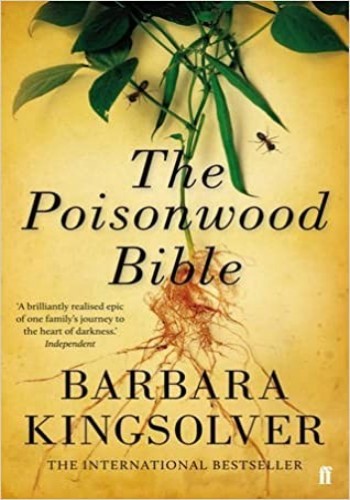
The Poisonwood Bible PDF
Preview The Poisonwood Bible
Oprah Book Club® Selection, June 2000:
In this risky but resoundingly successful novel, Kingsolver leaves the Southwest, the setting of most of her work (The Bean Trees; Animal Dreams) and follows an evangelical Baptist minister's family to the Congo in the late 1950s, entwining their fate with that of the country during three turbulent decades. Nathan Price's determination to convert the natives of the Congo to Christianity is, we gradually discover, both foolhardy and dangerous, unsanctioned by the church administration and doomed from the start by Nathan's self-righteousness. Fanatic and sanctimonious, Nathan is a domestic monster, too, a physically and emotionally abusive, misogynistic husband and father. He refuses to understand how his obsession with river baptism affronts the traditions of the villagers of Kalinga, and his stubborn concept of religious rectitude brings misery and destruction to all. Cleverly, Kingsolver never brings us inside Nathan's head but instead unfolds the tragic story of the Price family through the alternating points of view of Orleanna Price and her four daughters. Cast with her young children into primitive conditions but trained to be obedient to her husband, Orleanna is powerless to mitigate their situation. Meanwhile, each of the four Price daughters reveals herself through first-person narration, and their rich and clearly differentiated self-portraits are small triumphs. Rachel, the eldest, is a self-absorbed teenager who will never outgrow her selfish view of the world or her tendency to commit hilarious malapropisms. Twins Leah and Adah are gifted intellectually but are physically and emotionally separated by Adah's birth injury, which has rendered her hemiplagic. Leah adores her father; Adah, who does not speak, is a shrewd observer of his monumental ego. The musings of five- year-old Ruth May reflect a child's humorous misunderstanding of the exotic world to which she has been transported. By revealing the story through the female victims of Reverend Price's hubris, Kingsolver also charts their maturation as they confront or evade moral and existential issues and, at great cost, accrue wisdom in the crucible of an alien land. It is through their eyes that we come to experience the life of the villagers in an isolated community and the particular ways in which American and African cultures collide. As the girls become acquainted with the villagers, especially the young teacher Anatole, they begin to understand the political situation in the Congo: the brutality of Belgian rule, the nascent nationalism briefly fulfilled in the election of the short-lived Patrice Lumumba government, and the secret involvement of the Eisenhower administration in Lumumba's assassination and the installation of the villainous dictator Mobutu. In the end, Kingsolver delivers a compelling family saga, a sobering picture of the horrors of fanatic fundamentalism and an insightful view of an exploited country crushed by the heel of colonialism and then ruthlessly manipulated by a bastion of democracy. The book is also a marvelous mix of trenchant character portrayal, unflagging narrative thrust and authoritative background detail. The disastrous outcome of the forceful imposition of Christian theology on indigenous natural faith gives the novel its pervasive irony; but humor is pervasive, too, artfully integrated into the children's misapprehensions of their world; and suspense rises inexorably as the Price family's peril and that of the newly independent country of Zaire intersect. Kingsolver moves into new moral terrain in this powerful, convincing and emotionally resonant novel.
